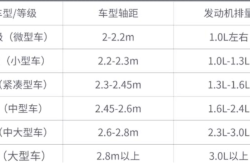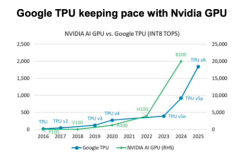Why does the United States blame China for overcapacity despite its own high inflation?
![]() 04/28 2024
04/28 2024
![]() 789
789
This is the 722nd original article published by the Xijing Research Institute and the 681st original article by Dr. Zhao Jian.
From an economic rationality perspective, the United States, plagued by inflation, should require China's capacity input for hedging. However, when Yellen visited China, she condemned China's overcapacity, which seems a bit inexplicable.
As I mentioned in my previous article ("Zhao Jian: China and the World - Great Divergence and Rebalancing"), if the world were a unified market, there should not be an imbalance of inflation in one country and deflation in another. If such a divergence occurs, it must be due to fundamental institutional barriers. Obviously, tariff hikes, trade sanctions, decoupling, geopolitical conflicts, ideological confrontations, and so on, are all such institutional barriers.
One significant divergence is that the United States, as the largest commercial empire and the first consumer power, relies on the dollar to purchase globally to meet its demand, but it attempts to rely on domestic or friendly countries' capacity to satisfy it, engaging in trade wars with countries that have different ideologies and values. In contrast, China, as the largest factory in the world and the first producer, prepares its capacity for the global market. However, due to trade wars, it has to digest its production internally, resulting in significant overcapacity. In the past, when the two countries were in a honeymoon period, the first producer and the first consumer could complement each other, jointly building a global supply-demand curve based on the Sino-US economic cycle, ensuring a "golden era" of low inflation and high growth for the world for nearly four decades.
However, this cycle comes at the cost of imbalance, namely, the double deficit in the United States' international trade and foreign investment. The former is the accumulation of long-term trade deficits, while the latter is the outward shift of US industrial capital. Multinational companies invest in emerging countries like China for low costs and taxes, resulting in the hollowing out of the US domestic industry and the formation of a desolate "rust belt." This economic imbalance has led to extreme dissatisfaction among the blue-collar class, which has translated into political resentment and voting (elections), affecting US trade policy through political conflicts and even triggering a wave of deglobalization. The rise of right-wing thought and Trump's election are typical examples.
China's issue lies in the fact that its industrialization has entered the late stage, with a highly developed manufacturing system, forming the most complete industrial sector system and the largest infrastructure in the world, exhibiting characteristics of a post-industrial society. Unfortunately, due to the lack of corresponding reforms in the distribution and governance systems to form a consumer society, China's huge output still relies heavily on the global market, especially the developed countries in Europe and America with strong consumption capacity. Although China has been committed to rebuilding its internal circulation system since 2018, it mainly relies on fixed asset investments such as real estate and local infrastructure to create short-term demand, resulting in side effects such as housing price bubbles and excessive local debt expansion.
The "three red lines" policy on land debt has triggered unprecedented debt-deflation, stalling the core driving force of the internal cycle. Relying solely on consumption is not feasible in the short term—how many fast-moving consumer goods and low-value consumables can offset the demand for durable goods like cars and home appliances and real estate? New consumption trends like cultural tourism are only "earning cheers" and cannot make up for the huge total problem caused by the stall in real estate and local infrastructure investment. Therefore, when both consumption and investment in the internal cycle contract, China's economic growth highly depends on the external cycle in terms of margins and cycles.
This has led to a situation where redundant capacity caused by the stall in real estate and local infrastructure investment, that is, shrinking domestic demand, floods into external demand, creating a significant internal competition effect on other countries internationally (accused of dumping overseas). Whether it is electric vehicles, lithium batteries, and photovoltaics, the "new three," or chips whose domestic production has been driven down to白菜 prices, they have had a significant impact on the global commodity market, causing extreme discomfort to the US, which aims for reindustrialization. Based on vote politics and supply chain security, the US government considers not how to manage the demand side of inflation but how to improve the supply side of domestic employment and supply chain stability. This is the main reason why Yellen condemned China's overcapacity—ideological issues are more important than domestic inflation. In fact, this is just part of the US's long-running trade war with China.
Of course, confidence in a great power comes from listening to different voices. China should also attach importance to the harm and risks brought by overcapacity and reflect on the root causes of periodic overcapacity. On the one hand, overcapacity means strong production capacity, stemming from China's industrial capital accumulated over more than 40 years, which has formed a huge operating leverage. Those who have studied financial knowledge should know that operating leverage is the leverage effect formed by a significant proportion of fixed assets, namely, the scale effect brought by the large industrial production system—the continuous reduction of marginal costs. For example, the reason why electric vehicles and chips are getting cheaper is that after the fixed assets invested in producing electric vehicles and chips are put into operation, the marginal cost of producing an additional vehicle or chip is very low, meaning the more produced, the more profitable it is. This is the periodic reason for overcapacity in industrial products.
On the other hand, local governments, eager to find new tax bases and debt bases (debt collateral and credit sources) after the failure of land finance, coupled with special bonds with strict requirements on project profitability, have also participated in this massive capacity leapfrog, further aggravating overcapacity. In the first quarter of this year, China's economy rebounded beyond expectations. Besides the better-than-expected improvement in external demand, the replenishment of capacity and inventory in the upstream sector, mainly by local governments and state-owned enterprises, was also a contributing factor. Without significant improvement in the downstream sector, expanding capacity only in the upstream sector is undoubtedly a Ponzi scheme in investment, which is likely to create even more severe overcapacity pressure in the second half of the year.
Meanwhile, this centralized and mobilized large industrial system overlooks one point: who can buy such consumer durables and industrial products produced in bulk for several to more than a decade? Therefore, the long-term weakness on the demand side is the fundamental issue and the main contradiction determining China's economic direction. To resolve this contradiction, it is necessary to focus on people's livelihood and specific interests, establish a modern consumer society, enrich the people, and give private enterprises a sense of security and belonging. Only then can they consume and invest with confidence, forming a balanced cycle between supply and demand. As an outsider, Yellen also mentioned the issue of insufficient consumption in China. In this regard, although her criticism is sharp, it is not as unfounded as condemning China's overcapacity. Recently, Blinken visited China again, and common ground in Sino-US relations is being re-established. Among them, focusing on people's well-being and livelihood should be one of the most important common grounds. Standing at a higher level, only by reconstructing the global economic and trade order based on equality and freedom and restructuring the Sino-US economic cycle can the United States emerge from inflation, and China from deflation.






